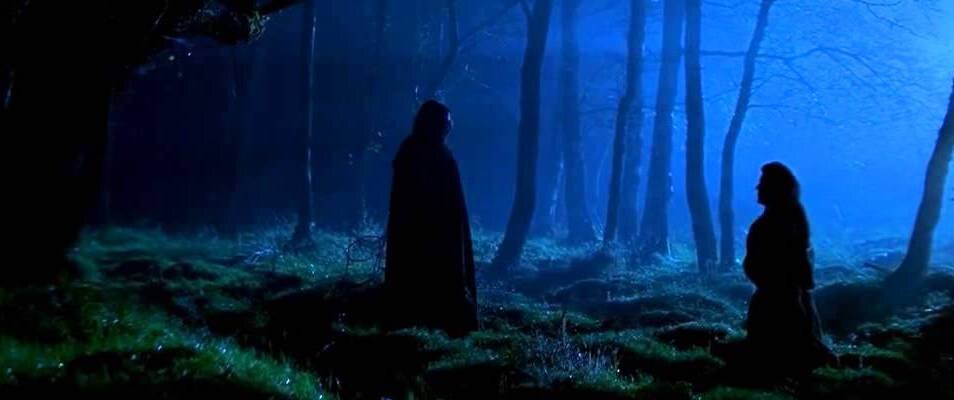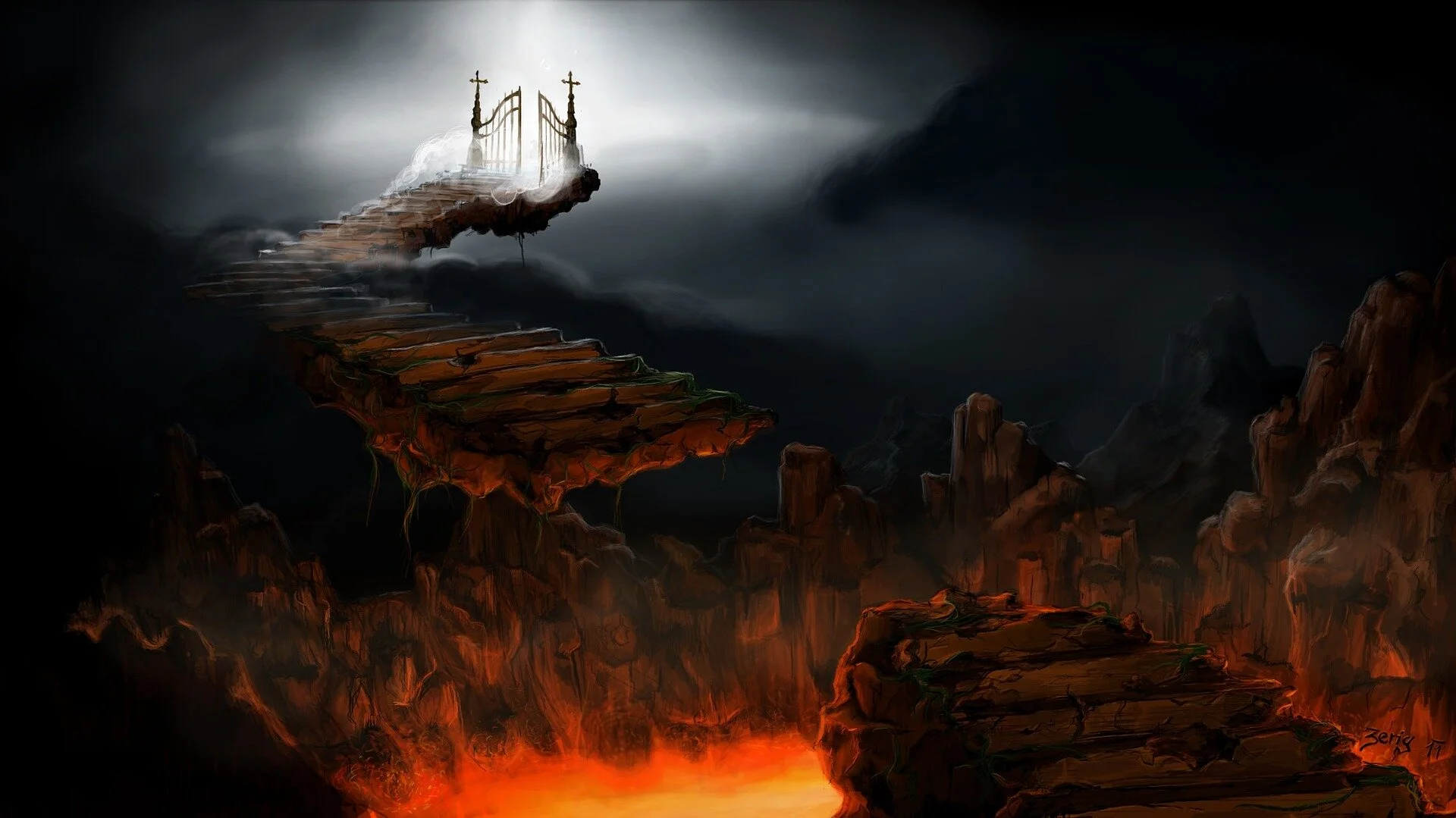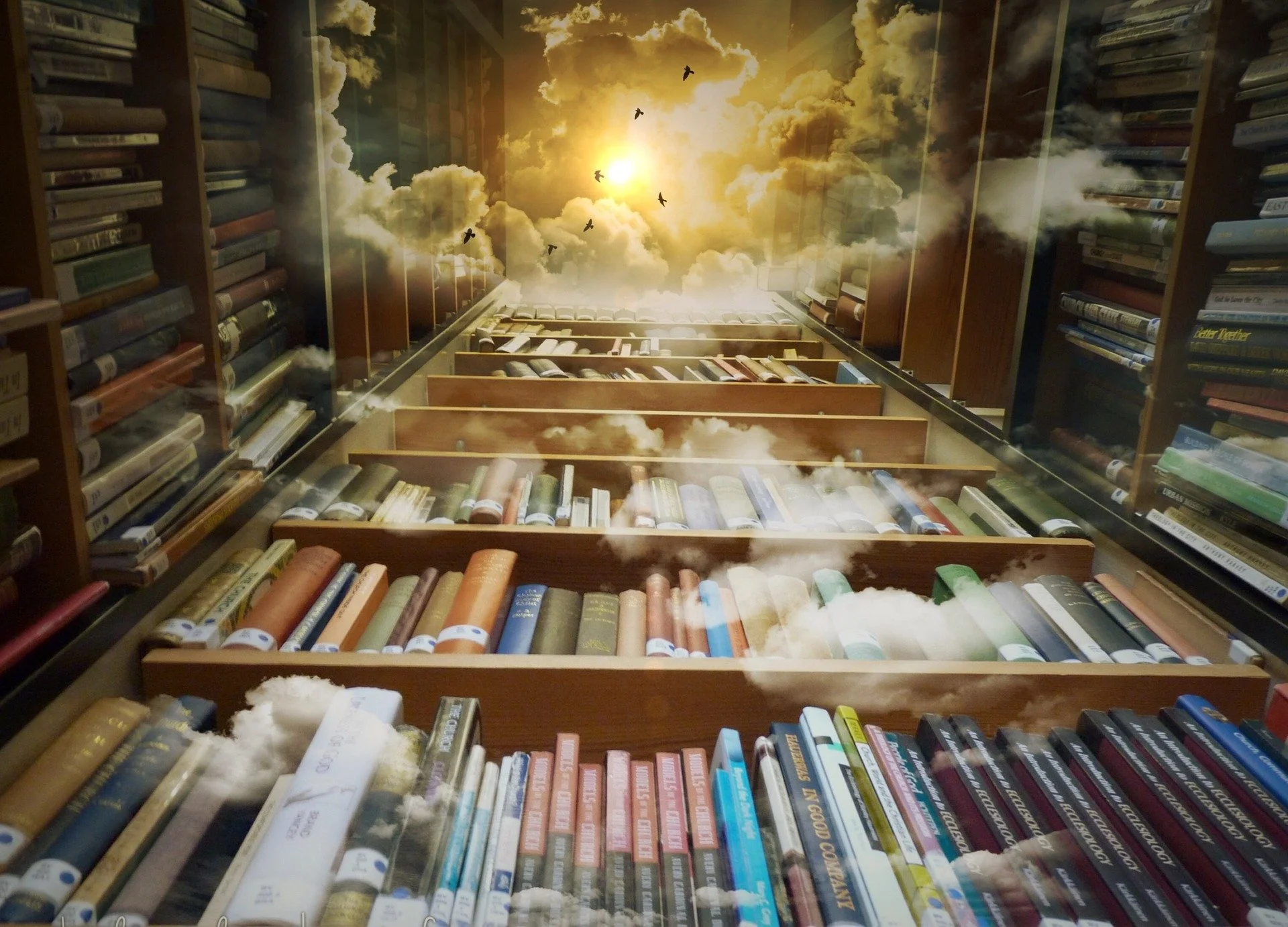When Dreams Are Better Than Reality: Dreamworlds in Literature, Film, and Philosophy
The dream scene from Braveheart with William Wallace (Mel Gibson) and the vision of his deceased wife Murron (Catherine McCormack).
Dreams and Waking in Star Trek: Picard
In the premiere episode of Star Trek: Picard, “Remembrance,” starring Patrick Stewart reprising his role as Jean-Luc Picard, we first see Picard within his own nostalgic dreamworld playing poker and conversing with his long-dead comrade and friend, Commander Data (an android played by Brent Spiner) in the Ten Forward lounge aboard their old ship, the U.S.S. Enterprise, NCC-1701-D, which had been previously destroyed in the film Star Trek Generations.
Within the dream, Picard drags out his turn at the poker game, prompting the dream vision of Commander Data to ask,
“Why are you stalling, Captain?”
To which Picard replies,
“I don’t want the game to end.”
Later in the episode, Picard’s Romulan friend Laris asks him about his dreams, in response to which Picard implies that his dreams have become better than his reality:
Laris: “Bad dreams?”
Picard: “The dreams are lovely. It’s the waking up that I’m beginning to resent.”
Dreams and Waking in Braveheart
Escaping reality by retreating into a dreamworld is a common theme in literature and film. An example is the 1995 film Braveheart starring Mel Gibson as William Wallace, a Scottish knight who as one of the main leaders of the First Scottish War of Independence. In the middle of film when the war is progressing but taking its toll on the Scottish forces, and on William Wallace himself, we see William Wallace awaking in a forest, still in his own dream unbeknown to him, to the sight of his deceased wife Murron, who had been killed earlier in the film by the High Sheriff of Lanark. Within the dream, we see the following conversation between William Wallace and the dream vision of his deceased wife:
William Wallace: “I’m dreaming.”
Murron: “Yes you are. And you must wake.”
William Wallace: “I don’t want to wake. I want to stay here with you.”
Murron: “And I with you. But you must wake now. Wake up, William. Wake up.”
Dreams in The Divine Comedy
A similar event occurs in the opening scene of The Divine Comedy by Dante Alighieri, one of the greatest works of Italian literature:
Midway in our life’s journey, I went astray
from the straight road and woke to find myself
alone in a dark wood. How shall I say
what wood that was! I never saw so drear,
so rank, so arduous a wilderness!
Its very memory gives a shape to fear.Death could scarce be more bitter than that place!
But since it came to good, I will recount
all that I found revealed there by God’s grace.(Dante Alighieri, The Divine Comedy, The Inferno, Canto I, Translated by John Ciardi)
Dante, both the author and the first-person narrator of The Divine Comedy, awakens (presumably within a dream, but this is not fully clear from the text of The Inferno) to find himself in a dark wood, having lost his way midway through life’s journey. A shade (i.e., a spirit) of the Roman poet Virgil appears to him claiming to have been sent on a mission by Beatrice, Dante’s former love interest who rejected him and died young at age 25 (see La Vita Nuova by Dante). The Divine Comedy being rich with symbolism, Virgil represents human reason and Beatrice represents divine love in the context of the The Divine Comedy. Virgil leads Dante on a frightening journey through Hell (The Inferno) and partway through Purgatory (The Purgatorio) until Beatrice takes over as his guide the remainder of the way through Purgatory and into Heaven/Paradise (The Paradiso).
Although it would be a mistake to give an overly simplistic reading of Dante’s vision in The Divine Comedy purely as a form of escapism, given the rich symbolism in The Divine Comedy as a whole, undoubtably Dante’s vision of Paradise, with Beatrice as his guide, represents a form of perfection unattainable in the actual world, either in waking life or here on Earth as compared to divine perfection in Christian theology.
Dreamworlds in the History of Philosophy
For us today, having gone through all of the developments of 20th-century psychology, it can be tempting to give a purely psychological reading of these fantasy worlds or dream worlds as a type of psychological escapism. Yet, there is also a rich tradition of dreamworlds in the history of philosophy. For example, the Presocratic philosopher Pythagoras give a mystical account of numbers, music, and mathematics, with their perfection and immutability, as the very foundations of reality itself. Similarly, Plato held that there is a nonphysical realm of eternal forms (e.g., the form of Justice, the form of Goodness, the form of Love, etc.) underlying and more real than our physical world of imperfection, chaos, and endless change. Plato’s Allegory of the Cave (Republic, Book VII) could also be interpreted as dreamlike vision metaphorically representing the philosopher’s (and Socrates’s!) journey out of the darkness of the physical world of shadows and illusions toward his own idealized vision of reality and onward into the light of reason—i.e., having gained knowledge of these eternal forms. Centuries later, in the Modern period of philosophy, René Descartes gave an account of consciousness as a nonphysical res cogitans (i.e., thinking thing) distinct from his physical body and from the entirety of the physical world around us.
What role do these dreamlike visions play in philosophy traditionally? It’s unquestionable to me that they represent various philosophers’ distinct visions of ideal existence or perfection, commonly attempting to escape the uncertainty and endless flux of the physical world and of their own embodied existence in an easier-to-understand, calm-making world of pure but relatively cold and stark rationality. Given the endless chaos of life in the physical world, and given the relative purity of these philosophers’ rationalistic dreamlike visions of ideal reality, it seems likely to me that each of them must have resented waking up from their philosophical dreams as well, much like Jean-Luc Picard does in the first episode of Star Trek: Picard.
There are, of course, philosophers who push back against this form of rational idealism. Friedrich Nietzsche comes to mind with his life-affirming philosophy of embodiment and individuality. But even Aristotle, Plato’s student, succeeded at keeping his nose to the ground and his feet planted firmly within physical reality, with all its faults, much more than his former teacher seemed capable of doing.
How Can we Reconcile Our Dreams with Our Reality?
So what do we do when our dreams—literary, romantic, philosophical, or otherwise—start to seem better than our day-to-day reality? I myself am guilty of retreating into various fantasy worlds, sometimes in film and television, sometimes literary, sometimes poetic, and sometimes into my own idealized romantic visions of what life and love should be. I can get swept away in my favorite science fiction franchises like Star Trek and Stargate (specifically Star Trek: Voyager and Stargate SG-1), in my happy places like the Anne of Green Gables miniseries (and its sequel Anne of Avonlea) and book series, in great epics like Homer’s Odyssey or in the aforementioned Divine Comedy, in romantic films like When Harry Met Sally, Lost in Translation, or the Before Sunrise trilogy, and even in various philosophical flights of fancy like my philosophical predecessors described above.
So, again, what do we do when reality doesn’t live up to the dream? Do we embrace the chaos and make it our own as Nietzsche would her us do? Do we throw in the towel or drop in the harness as the French existentialist philosopher Albert Camus suggested we might in his famous essay The Myth of Sisyphus? Or do we continue to escape into our philosophical, psychological, or emotional dreamworlds as writers, thinkers, filmmakers, and even the occasional starship captain have done from the dawn of recorded history and onward into the foreseeable future? Can we not ind some way to reconcile our dreams with our day-to-day reality—the calmness of our idealized visions with the chaos of our physical and embodied realities? Or will this inner tension between our dreams and our reality persist for the remainder human history, no matter how much progress we make toward those ideals either in our own lives or collectively as a society or as a species?
I obviously don’t have the answer to that last question, even though I’m—perhaps naively—optimistic enough to envision that one day we might find a way, as Nietzsche implies, to make our present reality even better than our most idealized visions, better than any Platonic realm of forms or ideal state (see Plato’s Republic), better than any Pythagorean Harmony of the Spheres, better than any disembodied Cartesian consciousness, better than any divine perfection or Christian heaven, better than any idealized romance in literature or film—and better than any cherished dreamworld from which we never hope to wake.
(Which dreamworlds in literature, film, or philosophy speak to you the most, and why? Reply or leave your thoughts in the comments below.)















